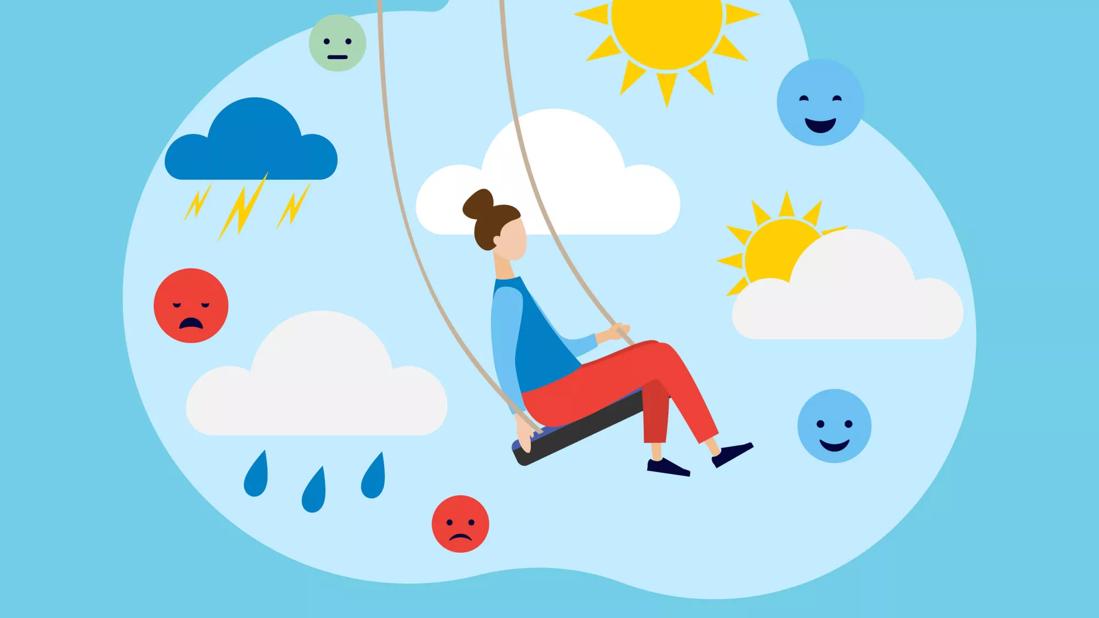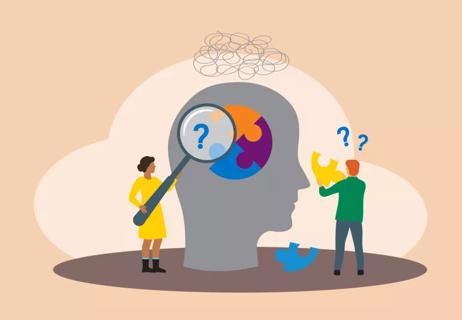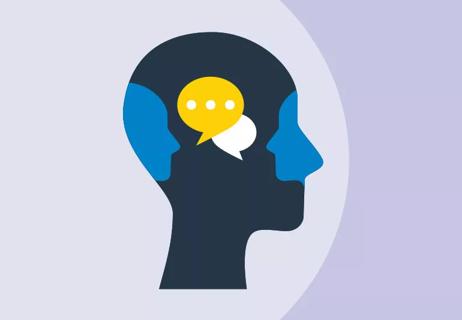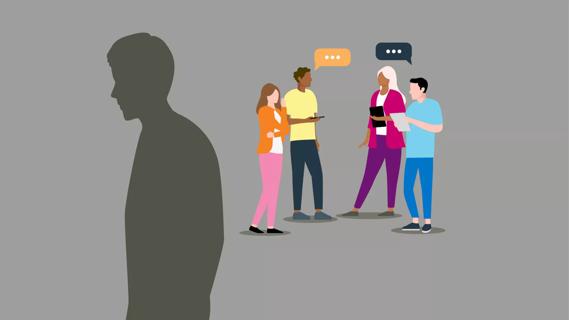Emotional changes, isolation and unusual behavior could signal the onset of the condition

Life changes during the transition between adolescence and adulthood may reveal something unexpected — early signs of schizophrenia.
Advertisement
Cleveland Clinic is a non-profit academic medical center. Advertising on our site helps support our mission. We do not endorse non-Cleveland Clinic products or services. Policy
The onset of the mental health condition typically begins in a person’s 20s. Schizophrenia tends to appear earlier in men and people assigned male at birth (AMAB), beginning in their late teens to early 20s. Women and people assigned female at birth (AFAB) usually see it start in their mid-20s to early 30s. (But the disorder can begin at any age.)
Symptoms often show themselves slowly and worsen over a period of months or years, says psychiatrist Minnie Bowers-Smith, MD. Here’s what to look for.
Schizophrenia changes the way that you think, behave and relate to others. “People with schizophrenia don’t seem to interact with the world in a healthy way,” explains Dr. Bowers-Smith. “There’s a loss of touch with reality.”
Signs of the mental illness can be subtle in the initial (or prodrome) stage and easily attributed to other life changes or activities. Common early symptoms include:
Mood swings can become more frequent as someone enters the early stages of schizophrenia. They may seem more irritable or angry. Fears of the surrounding world may grow. Suspicions may turn into paranoia.
Time spent with friends and family may suddenly dwindle. Phone calls stop. Conversations are avoided. “You tend to isolate yourself and seem preoccupied with your own world,” says Dr. Bowers-Smith.
Advertisement
Schoolwork, jobs and household responsibilities can begin to get neglected as thoughts wander further from reality. Irrational excuses may be offered to explain overlooked tasks or missed appointments. Motivation disappears.
The first signs of schizophrenia may last as little as a few weeks or as long as a few years. The “active” stage of the mental illness that follows brings more noticeable symptoms, notes Dr. Bowers-Smith. These can include:
Even as schizophrenia sets in, many people will overlook or explain away early signs of the condition. Denial can become a coping mechanism even as you see a loved one not functioning well.
In many cases, a college may be the first to send a young adult to be evaluated because of erratic behavior or a drug overdose. “Families often don’t seek help on their own,” notes Dr. Bowers-Smith.
It’s natural to struggle to understand schizophrenia symptoms or ignore the signs until they escalate, sometimes into violent behavior. But without help, problems will continue — especially when fueled by drugs or alcohol.
“If you find them up all hours of the night, or painting their room black, or too irritable or scaring people, call the doctor,” stresses Dr. Bowers-Smith.
Video content: This video is available to watch online.
View video online (https://www.youtube.com/embed/hDroA6eawsE)
YouTube video player
The earlier the better when it comes to seeking treatment for schizophrenia once symptoms appear, says Dr. Bowers-Smith. Healthcare providers diagnose the illness based on questioning and observations.
A diagnosis of schizophrenia is life-changing for those affected and everyone who loves them. It’s a step toward treatment and a full life. People with schizophrenia can finish college, work jobs, get married and have families.
There isn’t a cure for schizophrenia, but the condition can often be managed through a combination of medication, supportive therapy and education for the person and their family members.
“If you can manage the symptoms, you can have a reasonably stable life,” reassures Dr. Bowers-Smith. “That’s why it’s key to engage people early on and encourage them to find a doctor they can relate to and a therapist who understands them.”
Research indicates that the earlier the treatment the better the outcome.
The National Alliance on Mental Illness (NAMI) offers support groups for the mentally ill and their families. Other support groups are:
Advertisement
There are many mental health providers who can provide help. They’re trained to eradicate the stigma associated with mental health in general and schizophrenia in particular.
Know this, too: If you’re dealing with schizophrenia in your life, you’re not alone. The condition affects about 0.5% to 1%, or 24 million people worldwide, according to the World Health Organization (WHO).
Advertisement
Learn more about our editorial process.
Advertisement

People with schizoaffective disorder have additional mood symptoms

The mental health disorder includes a spectrum of conditions

Seeking help through therapy can be an important step in improving your quality of life when you have UC

Connecting with others, going for a walk or focusing on sleep quality can help more than you might realize

Seeking help through therapy can be an important step in improving your quality of life when you have UC

Like being your own best friend in times of trouble, self-love is an act of self-preservation

It’s not about embracing your dark side — it’s about showing up for yourself

Like a boring ol’ grey rock, the goal is to be unresponsive and uninteresting to dissuade a harmful situation

Type 2 diabetes isn’t inevitable with these dietary changes

Applying a hot or cold compress can help with pain